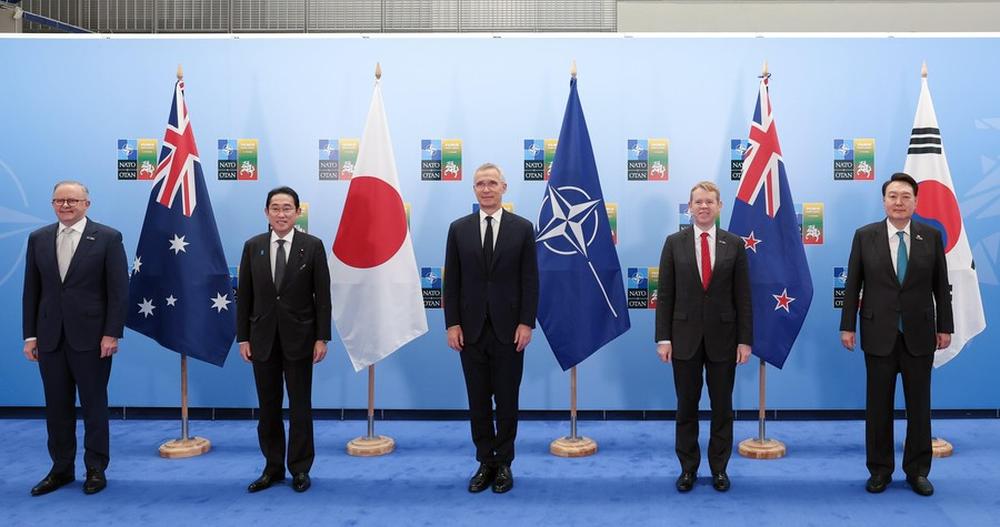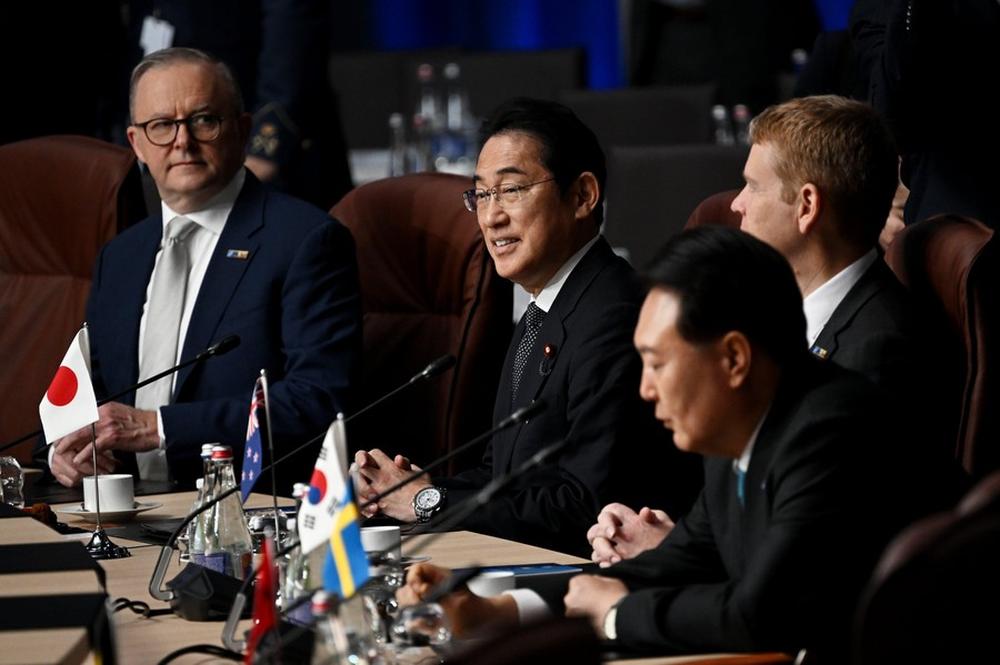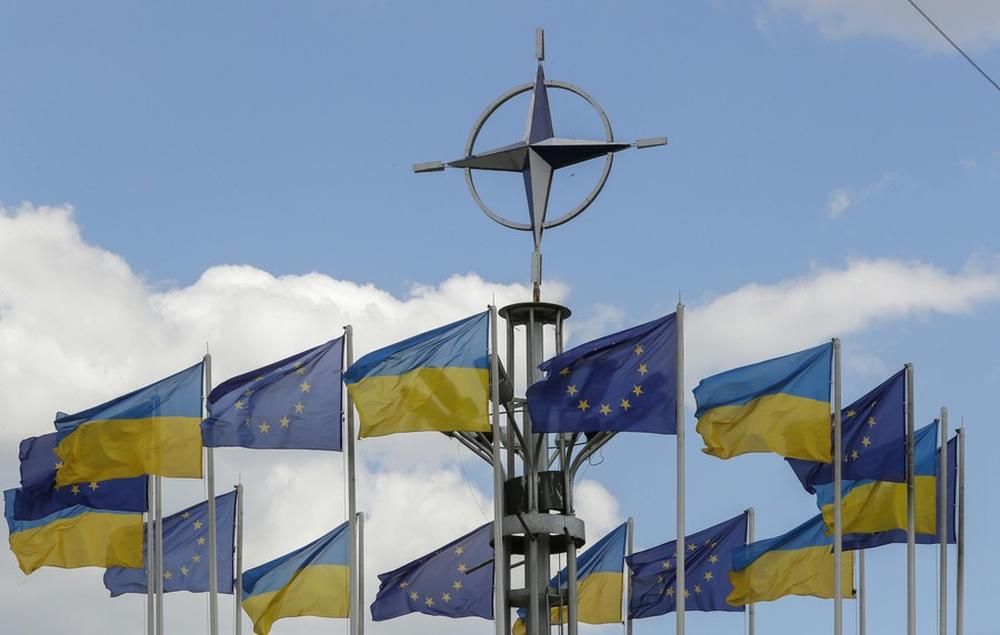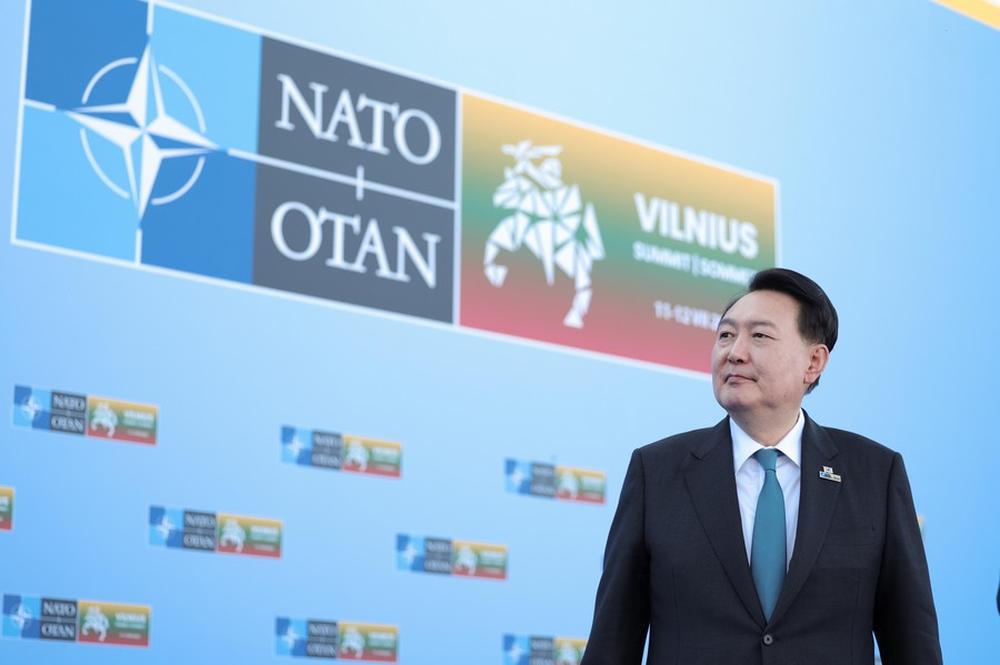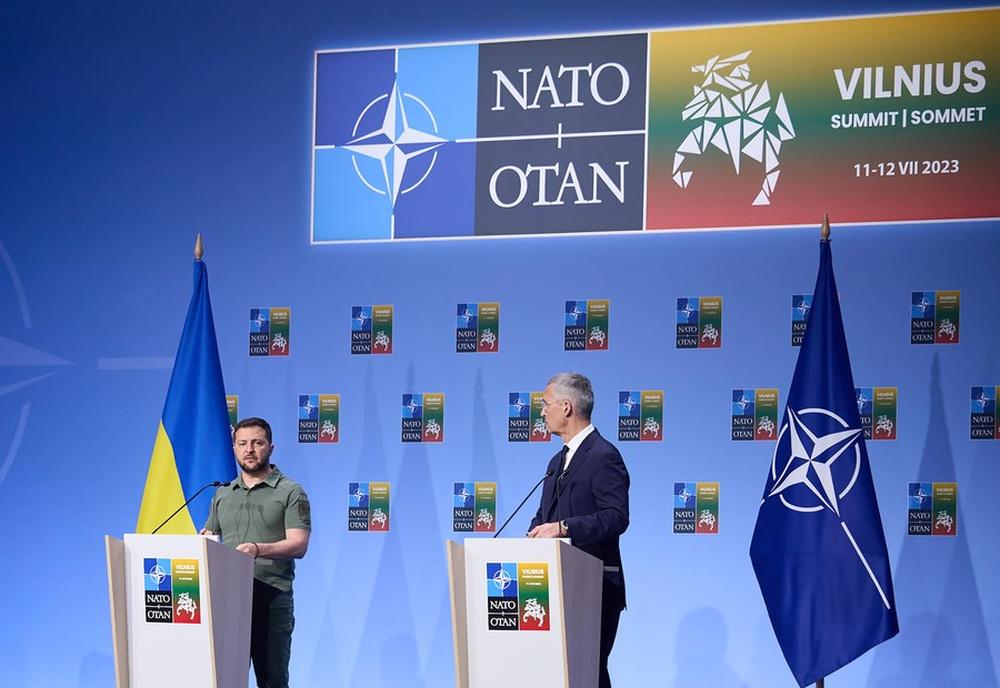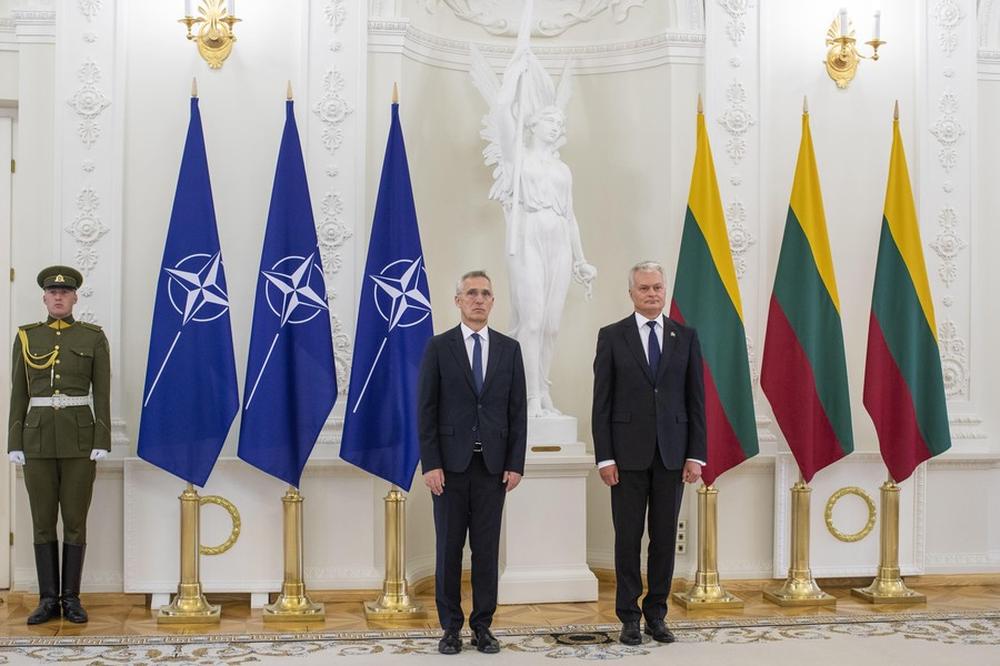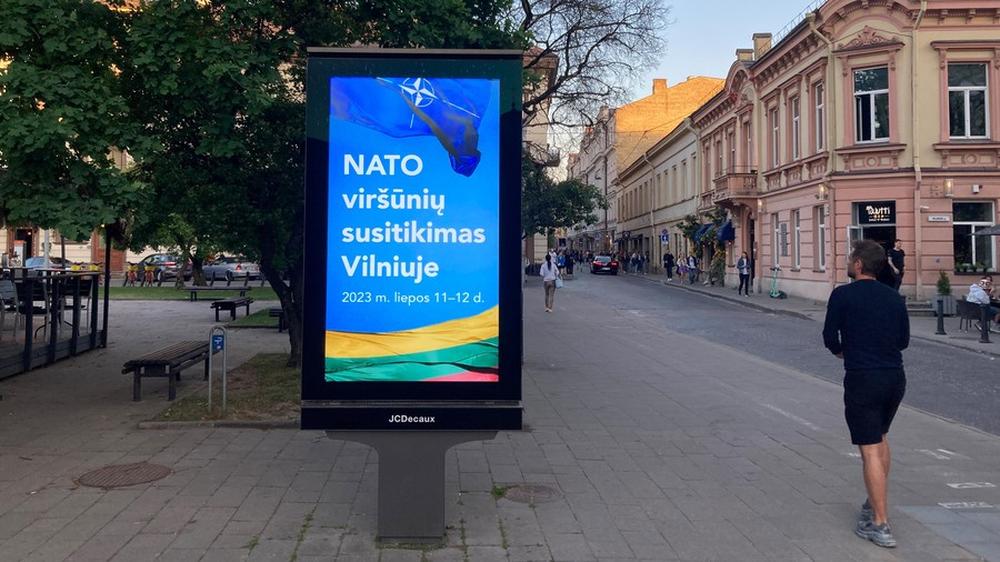- #Europe
- #Global Issues
- #Security & Defense
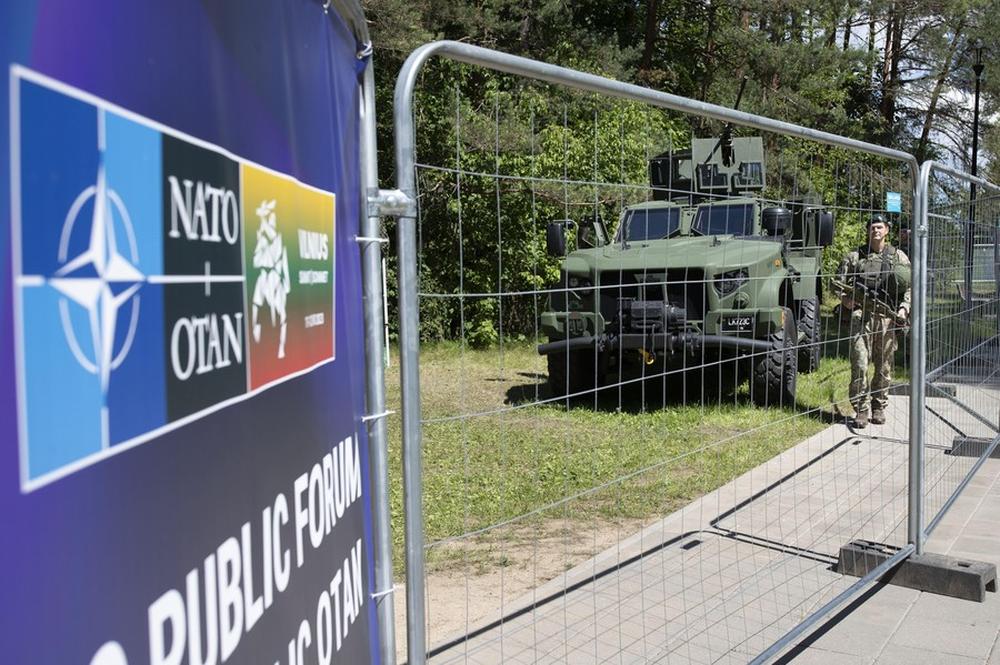
► Now that all NATO members are on board with the expansion, the alliance gains additional strength both externally and internally, and this unity was on display in Vilnius.
► Although the strengthening of NATO and its commitment of continued support for Ukraine can be viewed as a positive outcome from the standpoint of Ukraine’s fight against Russia, the summit did not lead to one tangible promise that Ukraine sought to secure in Vilnius.
► The commitments of military assistance made in Vilnius and the goal of NATO membership should reinforce Ukraine’s capability and determination as it continues liberating its territory.
The two-day NATO summit in Vilnius concluded without any obvious consequences for the ongoing Russia-Ukraine war, which is now in its second year and shows no signs of winding down. In every way – politically, militarily, and economically – the situation on the ground appears unchanged and presents numerous challenges for Ukraine, which is currently pressing forward with its offensive. Yet, several developments in the run-up to and during the summit could have a meaningful effect on the course of this conflict, even if it may take some time for this impact to become evident.
One of the key announcements that are directly relevant to the conflict is NATO’s long-term commitment to Ukrainian security. Although not surprising given the increasing volume of military and other assistance that NATO members have sent to Ukraine since February 2022, this pledge counters the Russian narrative that the US and its allies would quickly lose interest in supporting Ukraine. The pledge is not just cheap talk as it reflects increasing transfers of military aid from NATO countries, including long-range cruise missiles, such as Storm Shadow and SCALP, which were previously withheld due to concerns regarding Russia’s potential response. Similarly, a few days before the summit the Biden administration confirmed that the US would provide Ukraine with cluster munitions to address the shortage of unitary munitions. Importantly, NATO members formed a coalition to train Ukrainian pilots to fly F-16 fighter jets, which are expected to appear in the country early next year, thereby boosting Ukraine’s air force and shifting the balance in its favor. Transfers of many of these weapons systems were unthinkable last year, but are entirely consistent with the long-term commitment to Ukraine’s defense made by the alliance. Overall, this signals to Russia that it needs to adjust its expectations of what it can accomplish in this war because Ukraine can count on NATO members’ support for as long as necessary.
Another key development was the expansion of NATO and its show of unity. The day before the Vilnius summit, President Recep Tayyip Erdogan of Türkiye announced his decision to drop opposition to Sweden’s bid to join NATO and forward the ratification agreement to his country’s parliament. This shift in Türkiye’s policy position will strengthen the alliance by adding another member country with an advanced military, which is compatible with NATO members’ forces. Sweden also occupies a strategically important location in the Baltic Sea region, which will help the alliance to boost its northern wing. Moreover, President Erdogan’s decision has significant symbolic value: collective decisions in the alliance are reached by consensus, and disagreements over Sweden’s membership in the past sent a signal to potential adversaries, including Russia, that the alliance experienced internal tensions. Such tensions could be exploited to complicate collective decision-making and reduce the alliance’s effectiveness as it seeks to address rising security challenges. Now that all NATO members are on board with the expansion, the alliance gains additional strength both externally and internally, and this unity was on display in Vilnius.
President Erdogan sent another powerful signal in the run-up to the summit, which received much attention in Ukraine and Russia, but was mostly overlooked in other countries, despite its symbolic importance and potential policy implications. Türkiye allowed five commanders of the Ukrainan forces that defended the Azovstal steel plant in Mariupol to return to Ukraine with President Volodymyr Zelenskyy. This transfer angered Russian officials who accused Türkiye of breaking the terms of the prisoner-swap agreement without consulting with Russia. The commanders were expected to stay in Türkiye until the war is over. It is certainly possible that Erdogan concluded that the war would never end, turning into a stalemate, similar to the situation on the Korean peninsula. This scenario of the Russia-Ukraine war cannot be ruled out, and it would not make sense to keep the Ukrainian citizens in Türkiye forever. However, another explanation – and certainly the perception in Moscow – is that this transfer was a gesture of goodwill towards Ukraine and a demonstration of solidarity with other NATO members that provide support to Ukraine. In this light, the timing of Russia’s decision to pull out of the Black Sea grain initiative that was brokered by Türkiye and the UN reflects this perception. Moscow has been looking for a way out of the deal since last fall and now took the opportunity to impose reputational costs on the Turkish president who helped to strike the agreement, which bolstered his clout as an international mediator.
Although the strengthening of NATO and its commitment of continued support for Ukraine can be viewed as a positive outcome from the standpoint of Ukraine’s fight against Russia, the summit did not lead to one tangible promise that Ukraine sought to secure in Vilnius. Before his trip to the summit, President Zelenskyy argued passionately that his country deserved to receive an invitation to become a NATO member and that such an invitation was long overdue. Yet, the summit communique disappointed in this regard. Instead, it reflected concerns of two key NATO members, the US and Germany, that extending an invitation at this point would lead to conflict escalation. Public opinion in NATO member countries is very supportive of their governments’ backing of Ukraine and sanctions against Russia. However, the public sentiment in many countries of the military bloc does not yet favor inviting Ukraine to join NATO, with the exception of newer members in East-Central Europe, such as Poland. Government leaders of these democratic states are constrained by their domestic public opinion. Moreover, they would prefer to avoid a direct military confrontation with Russia, whose officials regularly issue nuclear threats. The lack of an invitation and a concrete timeline for Ukraine’s accession are a product of these concerns.
At the same time, NATO reaffirmed its vision of Ukraine’s eventual membership and waived the membership plan requirement. This plan could have added years to the country’s accession timeline in the future, so the waiver constitutes a valuable concession. In exchange, the alliance expects Ukraine to accelerate its democratic development and reform its security institutions.
The pre-accession stage in many international organizations is typically the time when most reforms take place because aspiring members are highly incentivized to undertake costly efforts to be able to join an organization. Therefore, the alliance’s decision not to invite Ukraine just yet may help to keep the pressure on the Ukrainian government to deliver meaningful reforms, which would benefit Ukraine while also building its NATO partners’ confidence in its domestic institutions.
In addition, the pre-accession period in the case of Ukraine’s NATO bid would provide member nations’ governments with time to cultivate more public support for Ukraine’s accession. President Zelenskyy’s own highly effective communication can help to shift the public opinion more decisively towards support for its NATO membership, as he has been able to do with support for military aid to Ukraine. In the early days of this war, for instance, it was unthinkable that Ukrainian forces would use British or German tanks on the battlefield; yet, the country’s military accomplishments over the past year and its President’s eloquence made such military hardware transfers possible.
The Russia-Ukraine war would not be over, irrespective of the specific outcomes of the NATO summit. The root of the problem is that each side in the conflict remains unwilling to accept the peace terms that the other side is willing to offer, and that can only be changed on the battlefield. Nevertheless, the commitments of military assistance made in Vilnius and the goal of NATO membership should reinforce Ukraine’s capability and determination as it continues liberating its territory.
Dr. Elena V. McLean is a Professor of Political Science at the University at Buffalo, SUNY. Her research focuses on issues related to international institutions and international political economy, such as economic sanctions and foreign aid.
